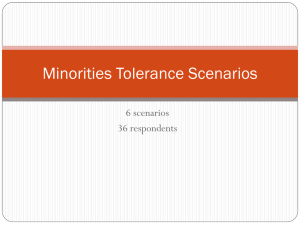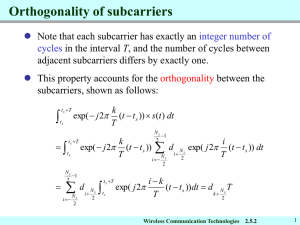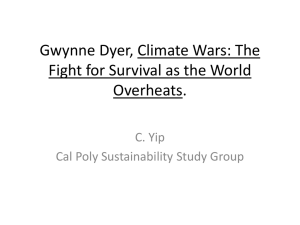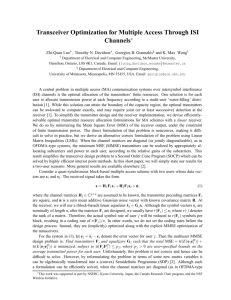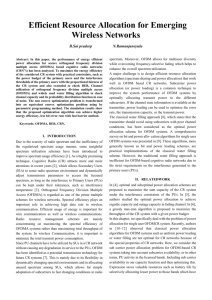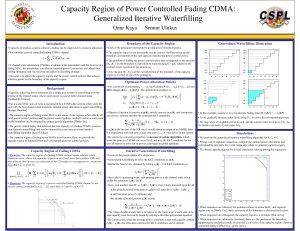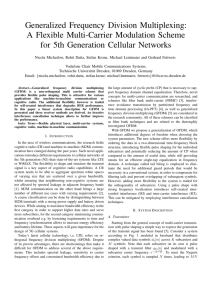OFDM Power Allocation Thesis Proposal
advertisement
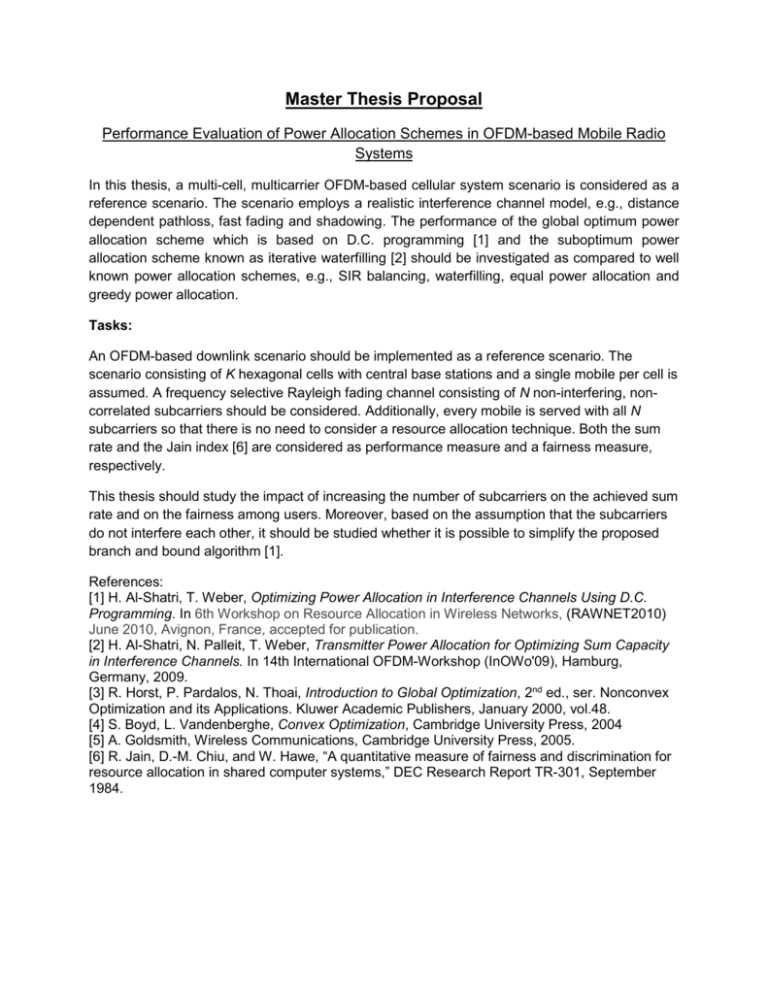
Master Thesis Proposal Performance Evaluation of Power Allocation Schemes in OFDM-based Mobile Radio Systems In this thesis, a multi-cell, multicarrier OFDM-based cellular system scenario is considered as a reference scenario. The scenario employs a realistic interference channel model, e.g., distance dependent pathloss, fast fading and shadowing. The performance of the global optimum power allocation scheme which is based on D.C. programming [1] and the suboptimum power allocation scheme known as iterative waterfilling [2] should be investigated as compared to well known power allocation schemes, e.g., SIR balancing, waterfilling, equal power allocation and greedy power allocation. Tasks: An OFDM-based downlink scenario should be implemented as a reference scenario. The scenario consisting of K hexagonal cells with central base stations and a single mobile per cell is assumed. A frequency selective Rayleigh fading channel consisting of N non-interfering, noncorrelated subcarriers should be considered. Additionally, every mobile is served with all N subcarriers so that there is no need to consider a resource allocation technique. Both the sum rate and the Jain index [6] are considered as performance measure and a fairness measure, respectively. This thesis should study the impact of increasing the number of subcarriers on the achieved sum rate and on the fairness among users. Moreover, based on the assumption that the subcarriers do not interfere each other, it should be studied whether it is possible to simplify the proposed branch and bound algorithm [1]. References: [1] H. Al-Shatri, T. Weber, Optimizing Power Allocation in Interference Channels Using D.C. Programming. In 6th Workshop on Resource Allocation in Wireless Networks, (RAWNET2010) June 2010, Avignon, France, accepted for publication. [2] H. Al-Shatri, N. Palleit, T. Weber, Transmitter Power Allocation for Optimizing Sum Capacity in Interference Channels. In 14th International OFDM-Workshop (InOWo'09), Hamburg, Germany, 2009. [3] R. Horst, P. Pardalos, N. Thoai, Introduction to Global Optimization, 2nd ed., ser. Nonconvex Optimization and its Applications. Kluwer Academic Publishers, January 2000, vol.48. [4] S. Boyd, L. Vandenberghe, Convex Optimization, Cambridge University Press, 2004 [5] A. Goldsmith, Wireless Communications, Cambridge University Press, 2005. [6] R. Jain, D.-M. Chiu, and W. Hawe, “A quantitative measure of fairness and discrimination for resource allocation in shared computer systems,” DEC Research Report TR-301, September 1984.

